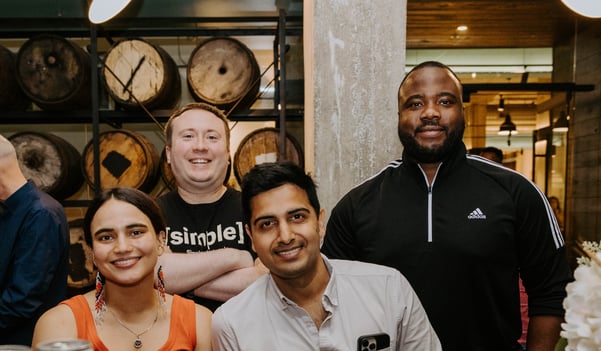Cultivate the Right Culture: Beyond Eating What You Kill

An old boss of mine used to conclude meetings with the phrase, “You eat what you kill in this business.”
It lent a special urgency to our work. There were real costs if we failed; messing up meant prey slipped away. My boss was a very even-keeled man, rare in the world of investment advisors. He didn’t rage or guilt trip when someone dropped the ball, but he did usually take an extra moment to remind us again of this one fundamental law of the finance world: you can’t eat what you don’t kill.
Federal contracting can feel just as stark because of its zero-sum competitiveness. It’s easy to get wrapped up in a scarcity mindset and have that become part of the culture. For someone on the ground, culture more closely resembles a collection of habits than anything else, or a practice. If the major driving imperative of your company is avoiding hunger, you’ll kill to stay fed—and in an environment like that, what happens when the pressure’s on? Even years later, I can still hear my old boss’s words when deadlines are looming and things feel literally life-or-death.
Company culture can profoundly influence the way you experience and handle stress. Case in point: During a review of a draft I wrote, the team began to discover that we needed rewrites. This is never welcome news when a deadline’s just days away, and I was beside myself trying to figure out how to fix it. Yet I noticed one thing I said unexpectedly changed the atmosphere for the better: “I think I see where I went wrong.”
I’ve definitely said those words before, but they’ve never had the same effect as they did at STS, and it didn’t make sense until I put it in context with one of STS’s core principles: lifelong learning. It sounds academic in nature, but it’s much more down-to-earth in practice—and I discovered “lifelong learning” absolutely includes the learning occurring when the draft you submitted two days before it’s due isn’t up to par and everyone’s confused.
Saying, “Oh, I think I see where I went wrong,” was me unwittingly opting into an STS cultural practice. My team’s choice to respond the way they did was the other half of the equation, and in many ways, much more meaningful—if only because they were under more pressure than I was. They could have chosen any range of responses; instead, they chose to continue the practice, and remade a stressful situation into something else entirely.
This is why culture fit is so incredibly important. There are many ways to handle stress, and you want to make sure you are around people who use it to build toward something better. But make no mistake—it’s not enough to hope that people will choose the constructive response each time. It’s culture, and the habits and practices it brings, that puts its weight on the scale to make the choices easier and clearer—even when the stress gets dialed up to 11.
STS puts a lot of thought into what we’re all about, and a lot of focus into practicing those values. When done right, they move us away from a scarcity, eat-what-you-kill mindset into something ultimately more sustainable and sustaining. What choices does your company’s culture want you to make, and how easy is it to make the right choice?
Click here to learn more about STS and the work we do.

Everett Roberts
Everett Roberts, Technical Writer, is a prize-winning poet and tech newcomer working to hone STS’s story and craft better narratives about the work we do.




